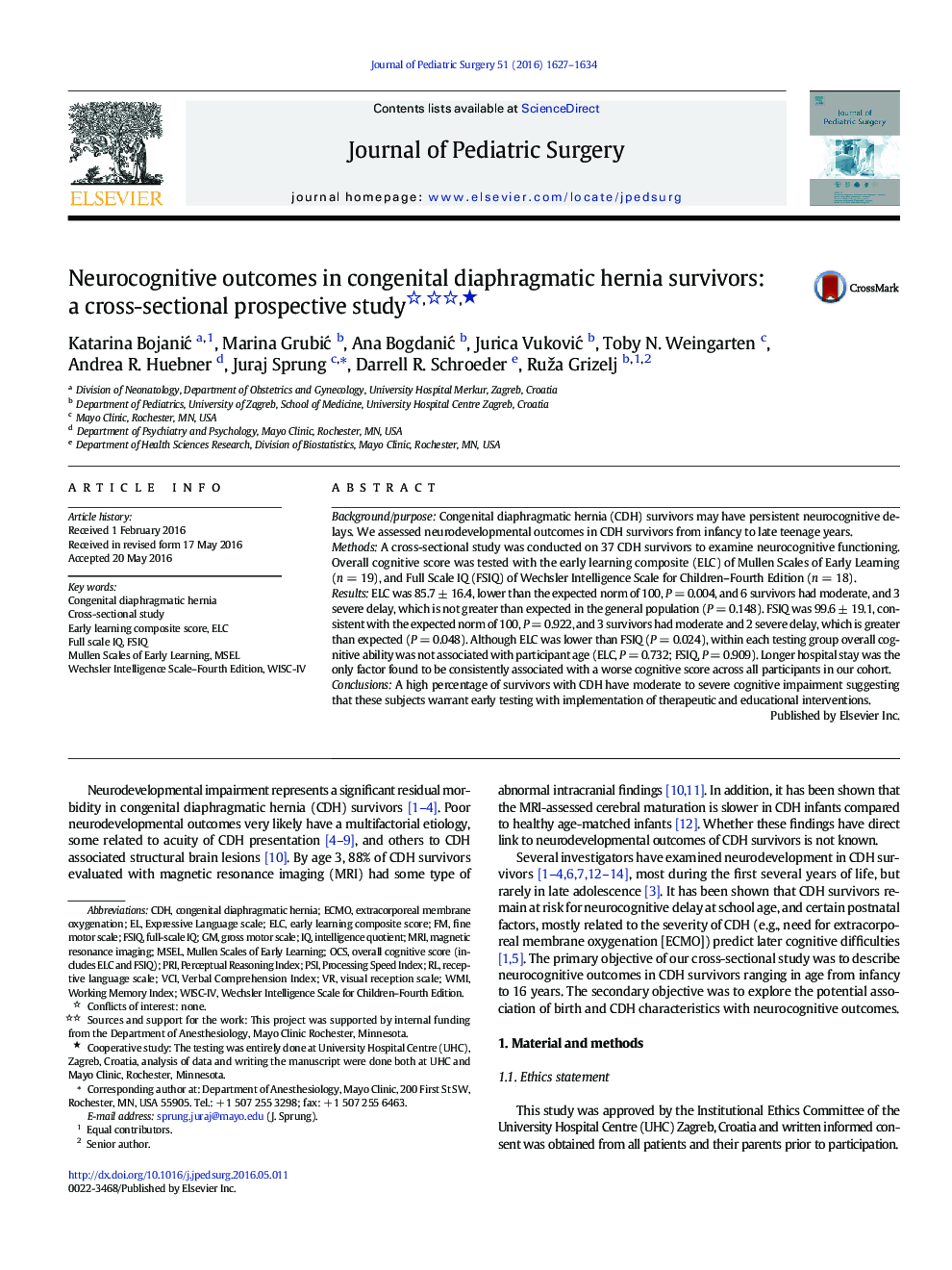| Article ID | Journal | Published Year | Pages | File Type |
|---|---|---|---|---|
| 4154670 | Journal of Pediatric Surgery | 2016 | 8 Pages |
Background/purposeCongenital diaphragmatic hernia (CDH) survivors may have persistent neurocognitive delays. We assessed neurodevelopmental outcomes in CDH survivors from infancy to late teenage years.MethodsA cross-sectional study was conducted on 37 CDH survivors to examine neurocognitive functioning. Overall cognitive score was tested with the early learning composite (ELC) of Mullen Scales of Early Learning (n = 19), and Full Scale IQ (FSIQ) of Wechsler Intelligence Scale for Children–Fourth Edition (n = 18).ResultsELC was 85.7 ± 16.4, lower than the expected norm of 100, P = 0.004, and 6 survivors had moderate, and 3 severe delay, which is not greater than expected in the general population (P = 0.148). FSIQ was 99.6 ± 19.1, consistent with the expected norm of 100, P = 0.922, and 3 survivors had moderate and 2 severe delay, which is greater than expected (P = 0.048). Although ELC was lower than FSIQ (P = 0.024), within each testing group overall cognitive ability was not associated with participant age (ELC, P = 0.732; FSIQ, P = 0.909). Longer hospital stay was the only factor found to be consistently associated with a worse cognitive score across all participants in our cohort.ConclusionsA high percentage of survivors with CDH have moderate to severe cognitive impairment suggesting that these subjects warrant early testing with implementation of therapeutic and educational interventions.
